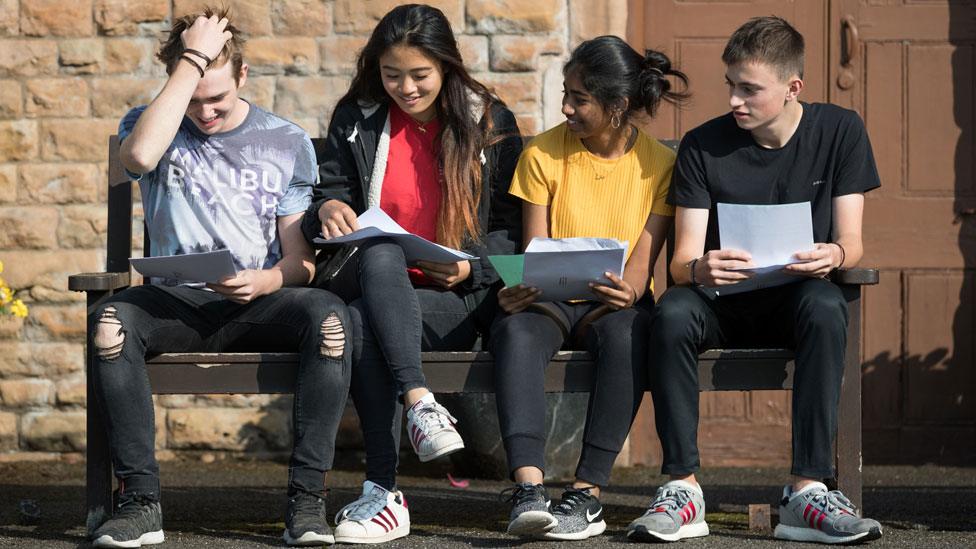Coronavirus lockdown: Laptops offered for online school lessons at home
- Published
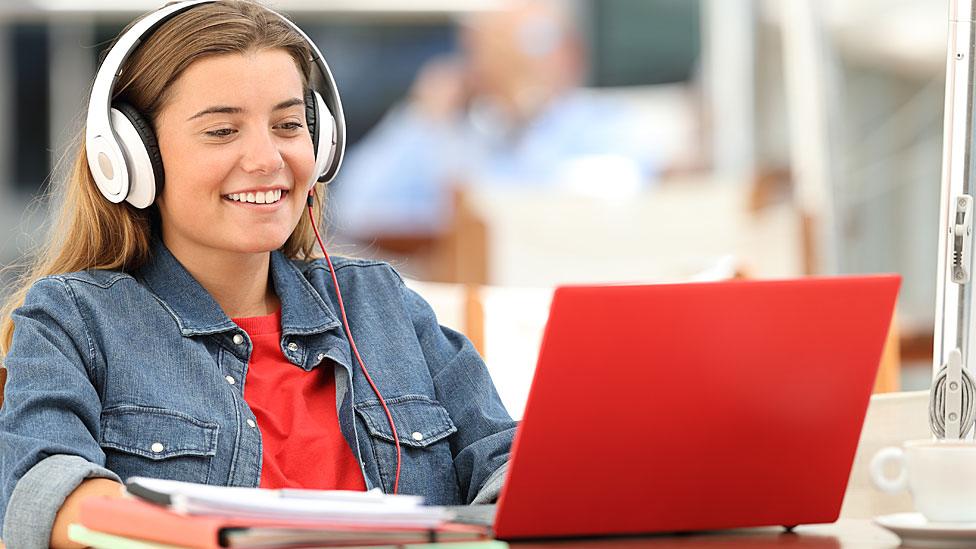
There have been concerns that poorer pupils could lose out when lessons are being taught online
Disadvantaged teenagers in England will be able to borrow laptops to help them study at home when schools are closed during the coronavirus pandemic.
The Department for Education is also supporting free online lessons for primary and secondary pupils.
Laptops or tablets will be provided for some deprived 15-year-olds who do not already have access to a computer.
Education Secretary Gavin Williamson said it will "take the pressure" off parents with children at home.
"Schools will remain shut until the scientific advice changes," said Mr Williamson.
To help parents now running their own classrooms, the government is promoting a series of 180 online lessons per week, for pupils from reception through to Year 10.
Laptops or computer devices will be provided for some disadvantaged pupils in Year 10 - who will be taking their GCSEs next year.
There is no specified number of laptops available, or set budget, and it will be up to schools or local authorities to decide who needs help with access to a computer.
They will also be available to children with a social worker or those leaving care - with schools keeping the computers when regular classes open again.
There is also the offer of some 4G routers to help families connect to the internet.
The promises over technology reflect worries that pupils from poorer families could be disproportionately losing out during the weeks out of school.
An academy trust, AET, has already bought 9,000 laptops and devices to give a computer to all its pupils eligible for free school meals, so that they can stay connected.
For pupils learning at home, online lessons have been prepared by teachers and education organisations, including the Sutton Trust and Teach First, and will be available under the label of Oak National Academy.
These will be hour-long lessons in a range of subjects, presented by a teacher, with worksheets and a quiz.

A SIMPLE GUIDE: How do I protect myself?
AVOIDING CONTACT: The rules on self-isolation and exercise
HOPE AND LOSS: Your coronavirus stories
LOOK-UP TOOL: Check cases in your area

The BBC will also be launching a range of educational resources online and on TV.
Geoff Barton, leader of the ASCL head teachers' union, welcomed the efforts to keep pupils learning.
He backed the focus on Year 10 pupils who have been missing part of their GCSE course - and said there had to be a "real sense of urgency" in supporting them.
But he said it was important to recognise how many families might not have up-to-date computers or might be struggling to pay for broadband.
There are still "significant logistical challenges" with this support scheme, said Paul Whiteman, leader of the National Association of Head Teachers.
"Not least, the speed at which these devices can be sourced and delivered," he added.
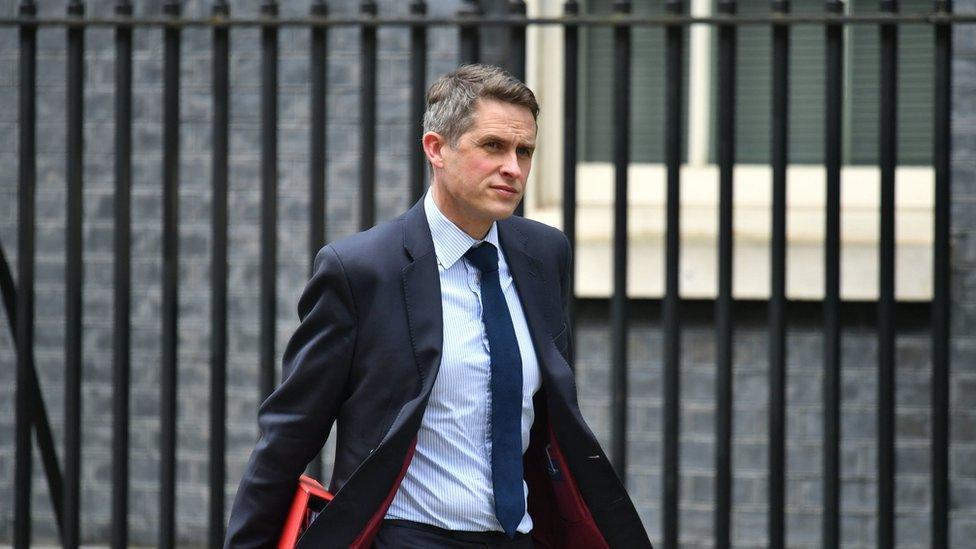
Gavin Williamson said the provision of laptops would take pressure off parents and schools
Anne-Marie Canning, chief executive of the Brilliant Club that helps disadvantaged youngsters get into top universities, said access to technology was already a wealth gap in education.
"Digital exclusion takes many forms, ranging from a lack of devices to the affordability of internet contracts," she said.
Being able to keep up with classes should not depend on "broadband status", said Ms Canning.
Mr Williamson said: "By providing young people with these laptops and tablets and enabling schools to access high quality support, we will enable all children to continue learning.
"We hope this support will take some of the pressure off both parents and schools by providing more materials for them to use," said the education secretary.
On Sunday, Mr Williamson said "no decision has been made" on when schools in England, which were closed on 20 March, will reopen.
Responding to a report in the Sunday Times, external suggesting some pupils could return in early May, he tweeted:, external "I can reassure schools and parents that they will only reopen when the scientific advice indicates it is the right time to do so."
- Published18 March 2020
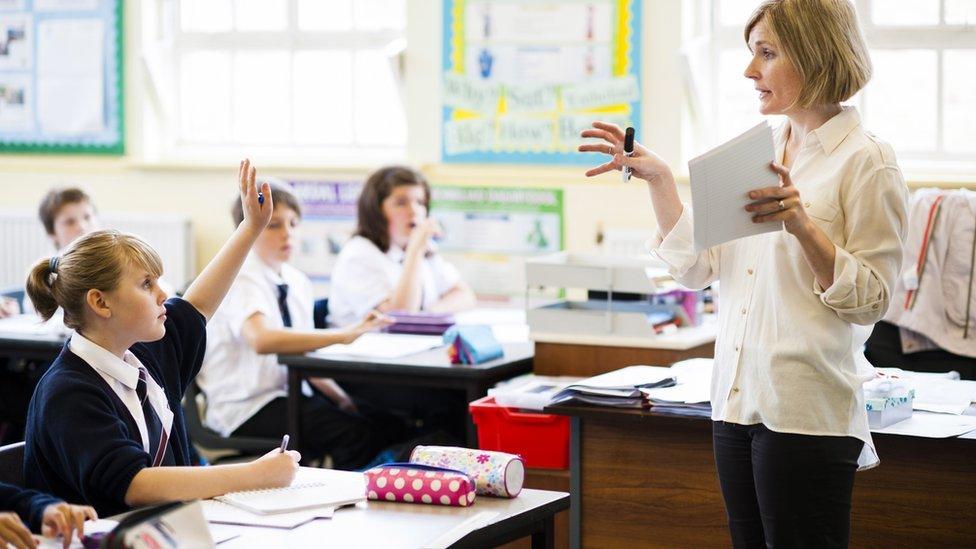
- Published8 April 2020
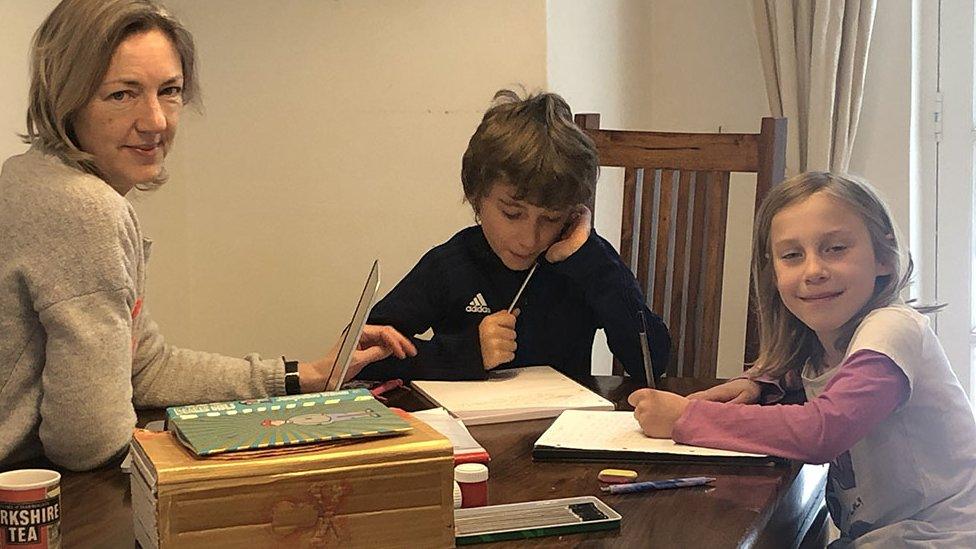
- Published3 April 2020
